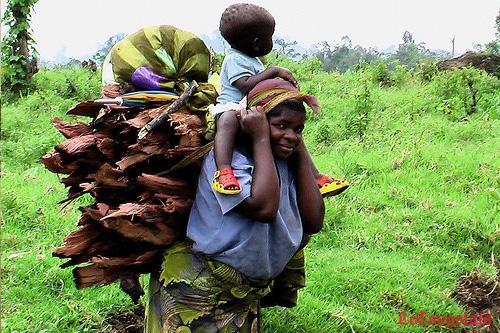There are no products in your shopping cart.
| 0 Items | £0.00 |


ONLY 6% on Nigerian women have access to credit despite the general figure within the country progressing to 64% from 56% as far back as 2020 according to non-profit organisation Women’s World Banking (WWB).
In its latest report titled Digital Credit Activation Toolkit, which was published in Lagos last month, WWB revealed that access to formal finance remains a challenge in Nigeria. Formal finance is capital sourced from banks and other formal financial intermediaries while informal finance is capital sourced from relatives and private lenders.
According to WWB, the Digital Credit Activation Toolkit was published to help financial service providers provide credit offerings with a specific focus on driving financial inclusion for low-income women. It added that with the toolkits, financial institutions in Nigeria can provide digital credits to 75% of under-banked women.
Ade Ashaye, WWB regional head for Africa, said: “Our mission is to create a world where all women have access to the financial tools they need to achieve their goals. The toolkit comprises three key phases - assess, adapt and roll out. Each phase provides actionable insights and guidelines to financial institutions looking to enhance their digital credit offerings.
“Under our current 10-year strategy (2017 – 2027), we’ve helped provide 37m women in emerging markets and are targeting 100m by 2027. Access and use of financial products and services are transforming women’s lives, households, businesses and communities and driving inclusive growth globally.”
He added that women in Nigeria are valuable but there are significant barriers, particularly relating to access to credit by female micro-entrepreneurs. It is estimated that there are 23m women entrepreneurs operating in the micro-business segment and that women-owned businesses comprise 41% of total small-and medium-sized enterprises in Nigeria.
According to WWB, there is a gender gap in favour of men to the tune of over $158bn. It added that women typically face higher constraints than men in obtaining loans, particularly because of the lack of physical collateral, which results in less favourable financial terms as higher interest rates, shorter loan duration and smaller loans when compared to men.
WWB also lists limited awareness of credit products by financial service providers, low level of trust and risk averseness toward digital loan offerings and low business skills and financial literacy as barriers to accessing credit by women. Globally, women constitute almost half of the world population but only 28% of women aged over 15 year access credit from a financial institution, compared with 31% of men.
According to WWB, women in Africa have the world’s highest rate of women launching their own business. It reports that in Africa, the proportion of women working in the informal sector, whether as employees, own-account workers or employers, are slightly higher when compared with men, standing at 90% and 83% respectively.